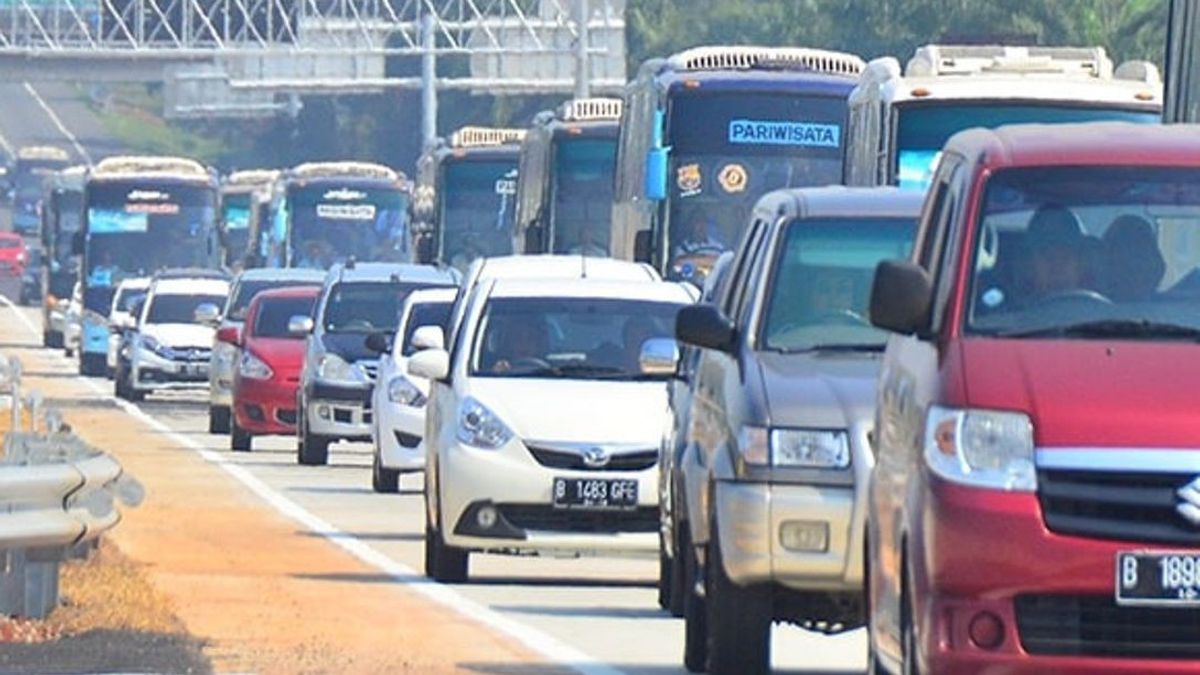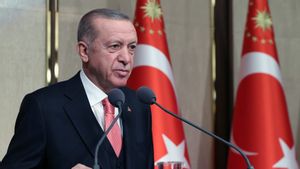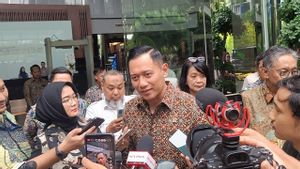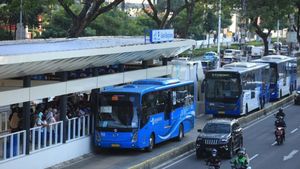JAKARTA - After going through a long discussion process and involving many stakeholders, the government announced a policy of banning Eid al-Fitr 2021.
The decision was taken considering previous experiences where every long holiday of COVID-19 cases after that went up.
This was conveyed by Deputy for Coordination of Health Quality Improvement and Population Development of the Coordinating Ministry for Human Development and Culture (PMK) Agus Suprapto.
According to Agus on the long holiday holiday of Eid al-Fitr 2020, August 2020, October 2020, and the Christmas and New Year holidays, there was an increase in CASES of COVID-19 from 37-93 percent.
While the percentage increase in deaths reached 6-75 percent with the time lag of the increase in cases ranging from 10-14 days after a long holiday. While the impact of new cases will be seen at least in the next 3 weeks.
Recognized deputy 3 PMK, if the number and percentage of active cases at the national level continues to decline. However, he cautioned, that the percentage of COVID-19 deaths still stands at more than 2.7 percent or above the global mortality rate of 2.16 percent
"The transmission of COVID-19 cases in Indonesia still falls into the category of community transmission, so if it is neglected in the prevention of transmission, it will be easy to increase cases," agus reported by Antara, Tuesday, April 13.
Based on that reason and to control the spread of COVID-19 cases, the government took a policy to prohibit the homecoming of Eid al-Fitr 1442 H, which is valid for 12 days, namely on 6 - 17 May 2021.
The ban on Eid al-Fitr 1442 H homecoming is not only applicable to civil servants, TNI, Police, and BUMN/BUMD employees, but also applies to the general public. "It is not permissible to travel during this period unless there is an urgent need," agus said.
The exception of the travel ban, agus continued, is applied to civil servants, TNI, Polri, BUMN /BUMD who travel on business (have a letter of duty signed by officials as of echelon 2), and a certificate of village /village head for people who have urgent needs.
According to Agus, the examination of Travel Permit documents will be conducted at various points, namely the arrival gate, the control door in the rest area, the border of the big city, and at the sealing points.
Prevention EffortsMeanwhile, the National Police expressed its readiness to secure the implementation of the ban on Eid al-Fitr 1422 H homecoming.
Head of Public Relations of The National Police Irjen Pol. Prabowo Argo Yuwono said that the National Police will take precautions related to the ban on homecoming in Eid al-Fitr this year.
Korlantas Polri will also open the possibility of re-sealing with Operation Yustisi. In addition, the National Police will synergize with various stakeholders to take decisive and humanist precautions.
Although disappointing, the public is still encouraged to comply with the ban on Eid al-Fitr homecoming this time. The ban on homecoming is like herbal medicine. "Bitterness is not able to meet a loved one on a good day, but rest assured that there are many benefits behind the bitterness that is felt," argo said.
While Karobinops Police Brig. Gen. Pol. Roma Hutajulu said, Police will hold four operations to prevent the flow of homecoming since the beginning of Ramadan until after Eid al-Fitr. The goal is to control the flow of community mobilization during the Eid al-Fitr period of 1442H.
Common Good
In fact, now the Government has issued a decision banning Eid al-Fitr homecoming in 2021 for ASN, TNI, Polri, soe employees, and private employees who are treated variously by the public. According to COVID-19 Task Force Spokesperson Prof Wiku Adisasmito, this decision was not easy.
However, this decision was taken by the government to prevent a spike in COVID-19 cases. The surge is often due to several times the momentum of long holidays that occur during 2020 including the Christmas and New Year holidays. Because if the number of cases rises again, it has a direct impact on the availability of hospital beds.
"And what we fear most of course is the rising death rate," Wiku said.
In view of the current development of COVID-19 handling, Indonesia has managed to reduce the addition of new cases of COVID-19 over the last few months.
So it is expected that with the ban on Eid al-Fitr homecoming can prevent the transmission of the COVID-19 virus from people per person due to the high mobility of people who move from one place to another.
"The decision to issue a policy of banning homecoming, is not an easy decision. Especially considering, this is the second momentum of Eid, which we pass in the middle of the pandemic," said Wiku.
Nevertheless, this firm decision must be taken by the government after consideration of risks for long-term impacts. And this is done for the common good. And the public is expected to obey this decision so that Indonesia is immediately free from the COVID-19 Pandemic.
The policy that is not easy but must be accepted together is then expected to lead the community to be reunited with family in the next big celebrations. At that time, Indonesia is expected to be able to reduce the number of spread and overcome the COVID-19 pandemic.
The English, Chinese, Japanese, Arabic, and French versions are automatically generated by the AI. So there may still be inaccuracies in translating, please always see Indonesian as our main language. (system supported by DigitalSiber.id)













